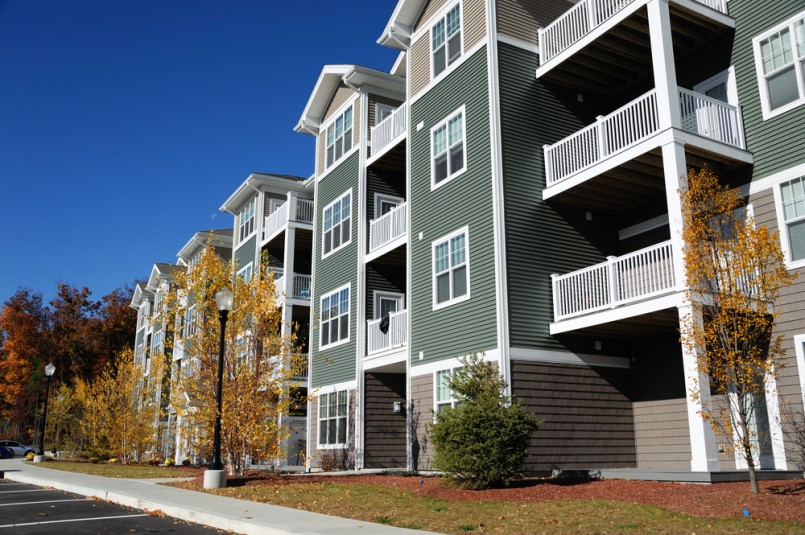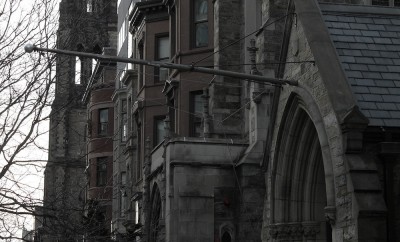Breaking News
Replacing single-family homes with multi-unit structures causes controversy

Image: ND700/Shutterstock
In cities across the nation, disagreements have commenced regarding the tearing down of single-family homes and replacing them with duplexes or multifamily units. The practice initially became attractive since a housing shortage followed the Great Recession, but recent events have incurred opposition from many groups. Although as many as a third of all citizens (depending upon the city) enjoy apartment living and the bustling density of urban communities for numerous reasons, the remaining two-thirds prefer their single family homes with a little more privacy, yard space, garages, sunny views and quiet afternoons. So why the arguing?
Pricey comparisons
The first matter to consider is the cost of the newer units being built. Many times, the prices of the new housing offered greatly exceeds the means of residents already living in the neighborhoods, essentially pricing them out of their own homes over time. Affordable housing then becomes a thing of the past. Housing advocacy groups in many areas have started fighting back. Activists and organizations have protested in Seattle neighborhoods, often with the support of at least some city officials. In North Side Chicago neighborhoods like Bucktown and Roscoe Village, for example, the demolition rate of older single-family homes with subsequent replacement by expensive multi-unit properties is remarkable. According to Chicago Cityscape, there’s a substantial difference between North Side demolitions and quickly erected, greatly more expensive replacement units and South Side activity, where the teardowns usually result in a long-standing empty lot. They’ve created a series of interactive maps on their site to illustrate the issue.
A matter of history and charm
If the price of new housing doesn’t shock residents, the strange look of the newly-built modern housing against a backdrop of older neighborhood buildings and simultaneous lack of concern for historical preservation will. Some longtime homeowners in Portland have argued against rezoning proposals (which are frequently necessary when such teardowns are replaced with multi-unit dwellings), due to the “undermining of the character of existing neighborhoods, without guaranteeing the production of more housing that most Portlanders can afford.” Protesters recently took to the streets in Portland, chanting “Save our neighborhoods, save our trees,” and sharing fears that Portland is “growing too much too quickly, and losing too much of its architectural character.”
In what appears to be a slight concession, Portland Bureau of Planning and Sustainability responded to the anticipated 123,000 additional households likely joining their city in near decades with a proposal to rezone 99,000 of the 155,000 single family homes in the city to create multifamily housing – but the size of the new structures “would be limited to less than half of the maximum allowed today, to better fit into existing neighborhoods.”
Orlando residents hope to keep duplexes out of single-family home neighborhoods as well, deeming the new structures as “out of character” with their surroundings. When pressed to choose, the city prefers more subtle multifamily housing over the typical side-by-side duplexes, which are easily detected as two connected units on one lot since the Orlando planning division complained in a recent report that these buildings “look like townhouses.” Additionally, areas like West Highland and Sloan’s Lake of Northwest Denver share mounting worries that new construction will obstruct views, block sunlight, decrease affordability, and possibly “tap into high water tables and cause an environmental mess.”
Some see silver lining
Some long-term residents of single-family homes don’t see the changes as necessarily negative, however. Moses Ross of the Portland neighborhood of Multnomah Village shares that, “I think it would increase the diversity of our neighborhood. It would increase the livability of our neighborhood. It would force more funding for transportation projects. I think it’s a good thing.” Others insist there are further upsides, including the possibility of lower home prices and rents, the reduction of income inequality, greater diversity within the neighborhoods, and the preservation of forest and farm lands elsewhere. Still more believe that modern buildings can actually be more attractive than older homes, adding appeal to the neighborhood, and maybe even increasing property values a bit.
Fear of fighting back
Residents in Northwest Denver even fear that a push-back from residents in response to re-zoning might be counterproductive. Restricting such projects might make their land less desirable for developers over time, and current investors could end up with far less from their investments than expected if future sales to these types of developers are prohibited. Overly restrictive policies and a lack of appropriate notice on the changes may drive future developers away. According to Bill Murphy, a thirty-year local developer, agrees with these sentiments, stating that these proposed changes to rezoning contain “the biggest impact on the building of duplexes that has ever taken place.”
An issue of rights
Jude Aiello, a leading voice on restricting development, disagrees with the upside crowd. Aiello argues that “As far as I’m concerned, when they are building these things in my neighborhood, my rights have been taken away. They are taking away my sun and my views and my rights to privacy.” Denver’s community and planning department is also on the side of preventing the duplexes and multiplexes, sharing the distress of residents over the fact that “longtime residents living in two-bedroom homes worth $200,000 (are) looking aghast at the large new construction going up next door, some of which have units that sell for up to $700,000.”
Although there has to be some way to adapt to growth in the future of our cities, density planning may need to reorganize in favor of the majority of residents, or face stagnation. And while there might not be perfect housing for everyone, with proper planning and negotiation there should most certainly be something acceptable.





0 comments